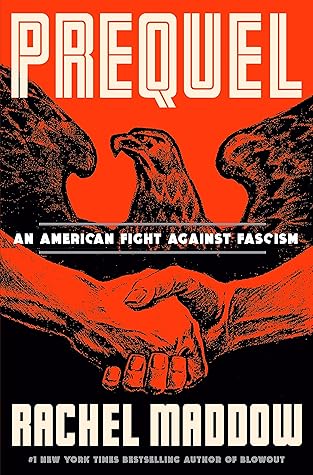More on this book
Community
Kindle Notes & Highlights
Read between
February 22 - February 27, 2024
There is no safeguard which the law can create which human ingenuity cannot circumvent.”
In the lead-up to World War II, the U.S. Congress was rife with treachery, deceit, and almost unfathomable actions on the part of people who had sworn to defend the Constitution but who instead got themselves implicated in a plot to end it.
Dies and his committee (and its successors) would of course go down in history as the legislative vanguard of the mid-twentieth-century communist-hunting Red Scare, but in the late 1930s their one wobbly, short punch at the ultra-right revealed a gathering swirl of hurt and hate that was about to come into direct, potentially violent confrontation with the U.S. government.
“There is a common practice of misusing the words ‘American,’ ‘Patriotic,’ ‘Christian,’ ‘Defenders,’ ” he explained. “That is to mislead the public as to the true principles of those organizations.”
Beyond Deatherage’s plan to form an umbrella organization, under the swastika banner, for all U.S. fascist groups, he had also started plotting their ascendance to power. Deatherage had designed a full-on blueprint for overthrowing the American government and installing a fascist regime run by a strongman in waiting;
Then after the election of 1940, when a large part of the country would be upset or even enraged at the outcome, the cells would be instructed to make strikes all over the country, all at once—a burst of armed, targeted violence, widespread and simultaneous. Even small fires, if enough of them were lit throughout the country, were sure to throw the United States into chaos. Then Deatherage’s organized cells would take advantage of that chaos to seize power, to discard the election results, and to install their preferred leader. An American Hitler.
Hitler, of course, asserted that this alarming opening act of the full-scale war in Europe was somehow an act of self-defense, that Poland was the real aggressor.
The Nazis’ plain intent was to add stress to the cracks and fissures already visible in American political life, Hoke explained: rich versus poor, foreign born versus native born, nonwhite versus white, Gentiles versus Jews, northerners versus southerners, Democrats versus Republicans, conservatives versus liberals. “Do you remember what Hitler had said?” Hoke wrote. “ ‘America is permanently on the brink of revolution. It will be a simple matter for me to produce unrest and revolts in the U.S., so that these gentry will have their hands full with their own affairs.’
Germany’s agents were tasked with finding these fissures in American society and then prying them further apart, exploiting them to make Americans hate and suspect each other, and maybe even wish for a new kind of country altogether. A partisan, bickering, demoralized America, the Nazis believed, would be incapable of mounting a successful war effort in Europe. It might even soften us up for an eventual takeover.
the Nazi game plan aimed to disunite the United States by tearing at the weakest political and cultural seams in American society: the divide between haves and have-nots, fear and hatred of immigrants, white supremacist race hate, and antisemitism.
we’re not all one mass of Americans, all pulling in the same righteous direction. There are plenty of our fellow citizens fighting on each side of our generation’s battle for democracy. And that will be true for the next one, too.
Gerald L. K. Smith, the protégé of Huey Long’s who had eulogized Long at his funeral back in 1936. Smith preached something he called Christian Nationalism—a segregationist, white supremacist doctrine—and joined Elizabeth Dilling as a pioneer of American Holocaust denial. Smith ran for president in 1944 on the America First Party ticket, which called for the sterilization and deportation of all American Jews.
Librarians and archivists and teachers are the Fort Knox of memory, history, and truth. We must defend them with everything we’ve got.


